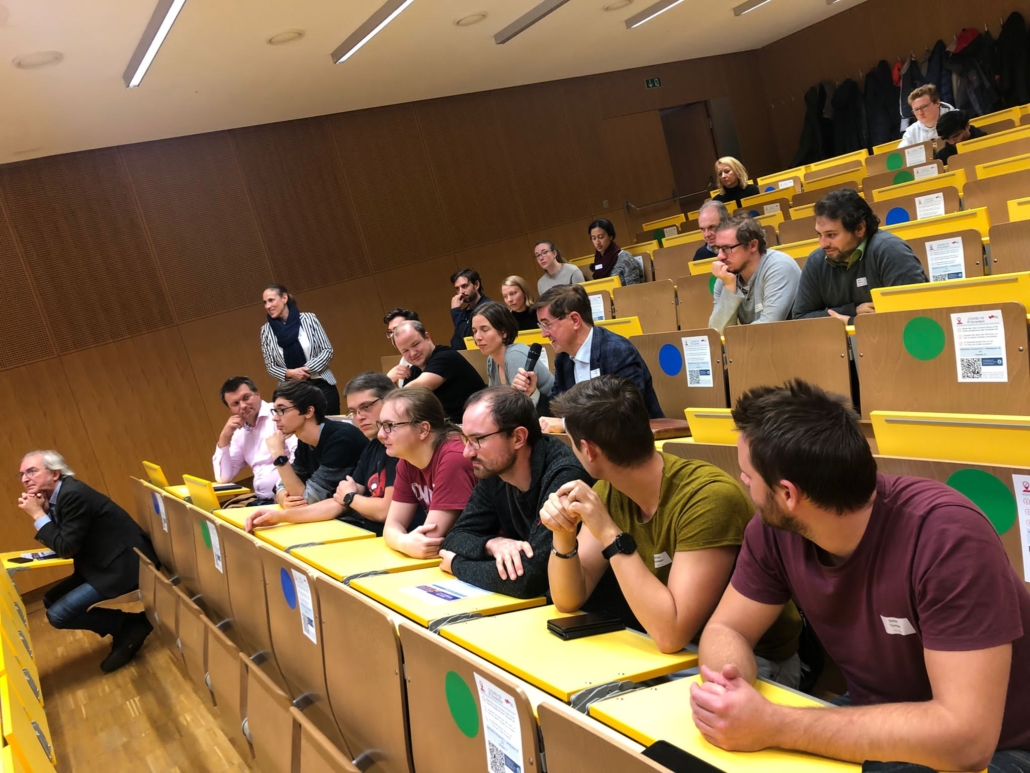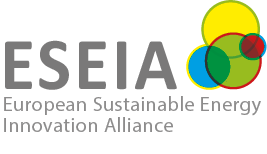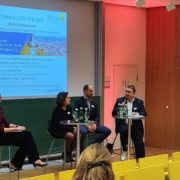ESEIA Lecture Series: Second Lecture Puts Spotlight on Europe’s Energy Future
The second lecture in the ESEIA Lecture Series was successfully held on 17 November 2022. Over 50 attendees from 7 countries joined us in person in Graz and online to discuss how the European Commission’s REPowerEU plan will shape the energy system in Europe.
Entitled Repower Europe, the lecture took place at HS i1, Inffeldgasse 18, Graz University of Technology (TU Graz), from 19:00 to 21:00 CET. This lecture is part of the series organised by ESEIA in cooperation with TU Graz to tackle the challenges of achieving climate neutrality by 2050.
After a warm welcome by the ESEIA President and Rector of TU Graz Harald Kainz, the Head of the Institute of Electricity Economics and Energy Innovation at TU Graz Sonja Wogrin opened up the session by introducing the topic and the panel of speakers. The panel included:
- Teresa Ponce de Leão, President of the Portuguese National Laboratory of Energy and Geology (LNEG), who spoke about how to turn Europe into a self-sufficient energy economy;
- Martin Graf, CEO of Energie Steiermark, who focused on what energy utilities need to scale up renewables and infrastructure;
- Karl-Heinz Kettl, Energy Head of Unit at the Styrian Chamber of Labour, who explained what the energy transition means for consumers.
Repowering Europe is not just a technical challenge
Teresa Ponce de Leão started her presentation by stating that the world is not on track to meet its climate targets. She discussed some reasons for this failure, including reduced investment in renewable energy, geopolitics issues, flawed regulation design, and, more recently, Russia’s invasion of Ukraine.
“In Europe, the most important point in the energy trilemma was competitiveness, but it changed to the security of supply,” she said. Then, she introduced the European Commission’s REPowerEU plan to phase out the dependency on Russian fossil fuels and explained the risks of compromising environmental sustainability and energy equity dimensions.
She concluded her presentation with general recommendations concerning the implementation of the REPowerEU plan, stressing the need for researchers to “accelerate knowledge implementation by monitoring and identifying gaps” and presenting suggestions to close them with existing knowledge.
Then, Martin Graf took the opportunity to shed light on how Energie Steiermark, one of the leading and most sustainable vertically integrated energy utilities in Austria, combines sustainability efforts with an even more pressing issue: secure energy supply for the winter.
He explained the company’s ambitious roadmap to become climate-neutral by 2040 and the key areas that need to be addressed to realise this transformation. “We are absolutely committed to investing in renewables, we are absolutely committed to investing in grid facilities, but we also have the need of allowances to make these investments possible,” he said.
Accelerating and increasing the efficiency of permitting and approval procedures was also addressed by Karl-Heinz Kettl. “Boosting renewable energy all over Europe is necessary,” he said, but this could lead to a “two-class society” where people can take an active part (e.g., PV) and people who rely on others (property owners) to do so.
He also talked about how price fluctuations in the energy market disrupt our society and suggested several actions to improve the current situation. For instance, “decoupling the electricity market from the gas market” would decrease the inflation rate and the risk of energy poverty.

The panel of speakers agreed on one thing: The transition from fossil fuels to renewables is an enormous challenge that requires a coordinated approach involving policymakers, energy suppliers and consumers. But it is also a chance to lead to a low-carbon future if we start acting now.
After insightful presentations about REPowerEU’s impact on the European energy system, we closed the session with questions from attendees, who challenged the panellists to reflect on the role energy communities may play in facilitating sustainable development or solutions to tackle energy poverty.

Thank you for joining us! We were pleased to welcome you all and see 16 organisations, including 8 ESEIA members (TU Graz, Energie Steiermark, University of Graz, UZagreb FSB, TU Dublin, Vilnius Tech, Utwente, Adene, and LNEG) and other Austria-based companies (H2i GreenHydrogen GmbH and Magna), represented at the event. Also, a big thank you to Energie Steiermark for sponsoring the dinner reception after the lecture.
More information about the first two ESEIA Lecture Series events is available here.
We look forward to seeing you again on 27 April 2023 at the third lecture in the series on New European Bauhaus delivered by the Professor at the Department of Urban Design at Vilnius Tech Gintaras Stauskis and chaired by the Head of the Institute of Architecture and Media at TU Graz Urs Hirschberg.
Follow us on LinkedIn, Twitter or Facebook to stay up to date on upcoming events!
Contact:
ESEIA Team: office@eseia.eu


